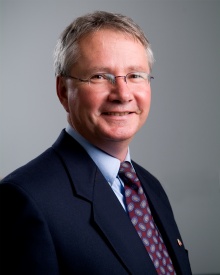Message From the Chair

Dear Alumni and Friends of Political Science,
I hope this issue of our newsletter finds you well and healthy. The past year has proven to be uniquely challenging for all of us. For the past year, the COVID-19 pandemic has seemingly turned the entire world on its head. With over half a million deaths and hundreds of thousands more seriously ill in the US alone, the scale of the tragedy is unsurpassed in modern times. The virus has found its way into our department, afflicting students and faculty alike. Attempting to curb its ravages, countries all over the world took a host of dramatic measures that restricted movement, regulated mask-wearing, testing, and limited social interaction. With many sectors deeply hit by the behavioral changes, companies went bankrupt and unemployment numbers skyrocketed.
Inevitably, the world of higher education was also upended. At the time of writing (March 2021), the distribution of vaccines promises to provide some release from the past year of social isolation and physical suffering. Since pivoting to on-line instruction for all but a handful of classes last March, the campus now plans for a return to in-class instruction this coming fall. Of course, contingency planning is also in place for remote or hybrid (combined remote and in-class) instruction in the event that there is another wave of virus infection next fall. Many of us are left to wonder if life would ever return to normal, or perhaps what life in the ‘new normal’ in a post-Covid world would look like.
Yet in the face of all the dislocation and suffering, life continued, albeit in new and unfamiliar ways. Moving instruction on-line meant that the campus was, for much of 2020, an eerily empty space. Faculty and students are to be commended for immediately adjusting to digital teaching platforms that most of us hadn’t heard of before the pandemic hit (for examples, Panopto and Zoom). Many of us held our breaths as we – as most universities and many businesses around the world – moved our operations online. Would the world’s digital infrastructure be robust enough to handle this extraordinarily increased load? Fortunately, the answer was a resounding ‘yes’.
In light of the virus and associated developments, 2020 and the early months of 2021 (at least) were times of unparalleled challenges for higher education. The economic dislocation associated with the fight to contain the virus impacted so many lives, and the downstream impact of this has had – and will likely continue to have – implications for public educational institutions which rely on some level of tax-payer funding.
Despite all this tumult, the past year has not been without significant successes for our department. Our number of majors has increased to about 450 students, and most of our classes fill to capacity, testifying to the recognition that political science remains critically relevant to our current condition. As a result of strong student demand (and our tradition of being able to recruit top-knotch scholars), we were fortunate in being able to add two wonderful young scholars to our department on tenure-track lines. Dr. Jieun Lee, a recent PhD graduate of the University of Michigan, specializes in international political economy. Dr Abigail Matthews, a graduate of the University of Iowa and recently employed as an Assistant Professor at Miami University of Ohio, specializes in the field of public law. We are thrilled to welcome these talented individuals and look forward to a time when we can see them on a regular basis in our department offices.
Another exciting development (see the piece in this newsletter) has been the approval from SUNY and the State Education Department for two new degree programs in the department. Beginning in the Fall of 2021 we will also be able to offer our students a BA and an MA in “Global Affairs”. We developed these degrees to build on department strengths in comparative and international politics, and through them we hope to prepare our students for globally-engaged citizenship and careers. We are currently searching for a Clinical Assistant Professor in Comparative Politics to help us meet the anticipated demand for courses in these – as well as our conventional political science – degree programs.
There were other highs and lows this year. A high was the dedication of our seminar room and library (502 Park Hall) in honor of the fifty-plus years of extraordinary contribution by SUNY Distinguished Service Professor (emeritus) Claude Welch on February 12, 2021. As a member of the department for virtually since its birth (he arrived in 1964, when the department was a year old!), he is drawing on his more than 50 years experience here to write a definitive history of our development as an academic unit. This will soon be available in its entirety on our department website. In addition to the widespread suffering resulting from the coronavirus pandemic, low points in our year included learning of the death of a former department chair, Al Somit, and of our long-serving and beloved former assistant to the chair, Betty Balcom.
I hope you enjoy reading our news from this unique year in the history of the department. Please reach out to us with your news at any time, and plan to drop by the department when life returns to normal and you are in the area. Take care and stay well.
We also encourage you to donate to the department so that we can continue to enhance and augment our offerings.
D. Munroe Eagles, PhD
Department Chair
